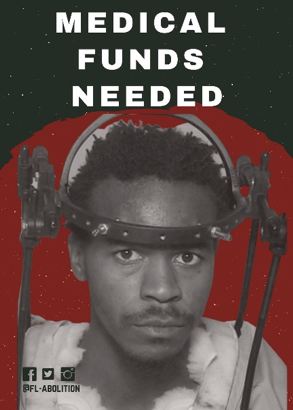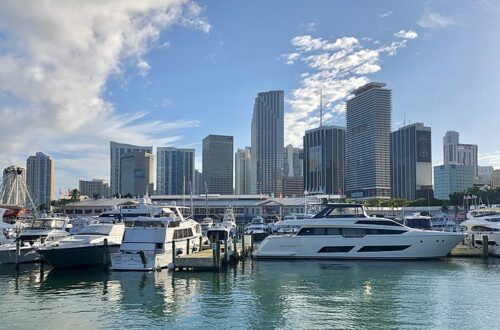“My name is James Mason, and I’m a silent survivor of extreme excessive force and police brutality at the hands of the infamous Jacksonville Sheriff’s Office to which I’ve been surreptitiously suffering from an undiagnosed serious life-threatening physical impairment ever since 2006.”
So begins James Mason’s letter to Congress.
This is not the start of his story, and it is certainly not the start of the systemic failures that led to him writing this letter, but it is the start of the letter — and perhaps where Congress stopped reading.
Mason’s Traumatic Brain Injury (TBI) dates back to January 23, 2006, in the Duval Pre-Trial Detention Facility. He writes, “I encountered a near-death experience by means of a botch assassination attempt via the crooked correctional officer’s inmate lackeys. For the simple fact I attempted to Stand Your Ground by means of self-defense mechanisms.”
The attacker crushed Mason’s body on the floor at an acute angle, from which he survived but sustained severe physical impairment. According to Mason, 20 days went by without a medical examination. During this time, he had to walk around with a broken neck.
Finally, on February 11, he was taken to the emergency room for an x-ray. In Mason’s letter, he writes that the lack of immediate medical treatment led to a potentially preventable fracture of his cervical #1 and #2 vertebrae.
The doctor put Mason into a halo apparatus, which he wore for nine months. As for any other treatment after the incident, Mason says he was only given Ibuprofen.
In his letter, Mason continues, “I’m so broke (impecunious) literally and figuratively speaking to the degree I’m now soliciting and/or bartering so I can afford to obtain my fellow inmate’s pain medication…”
Given a TBI, being incarcerated can exacerbate difficulties with “language, mobility, learning, self-help and independent living.”
Currently, Mason is in the Desoto Annex state prison facility where his sentence will end on April 2, 2023. Until he undergoes a comprehensive medical examination, it will be unknown whether he qualifies for conditional medical release (CMR).
Florida Statute 947.149 requires a “reasonable degree of medical certainty” that an inmate is “permanently incapacitated” to be eligible for the Conditional Medical Release Program. It also applies to inmates who are “terminally ill.”
The Statute also states, “No inmate has a right to conditional medical release or to a medical evaluation to determine eligibility for such release.” The racial wealth gap may explain why a seven-year study by the Florida Commission on Offender Review found that 65.3% of Florida inmates granted CMR were white, compared to a 47.8% white prison population.
In 2017, a settlement in a case Disability Rights Florida brought against the Florida Department of Corrections (FDOC) stipulated that the FDOC would become more active in protecting incarcerated people with disabilities through services such as “medical appointments, disciplinary hearings, and educational programs.” The FDOC has not yet complied, meaning protections that could benefit Mason have not been implemented.
Mason has created a GoFundMe page for the funds to conduct the necessary medical assessment and to retain a lawyer. He has named his work the “Free My Son” movement, based on his name.

Mason’s story is one of many in a nationwide discussion about unrectified problems in the American justice system. Allegations of discrimination in prisons have been echoed from Minnesota to Vermont and beyond.
Police brutality, the TBI and the FDOC, Mason writes, have fostered his breakdown “physically, mentally and financially.”
A majority-white police force is accompanied by scientific and subconscious racial biases that may lead to excessive force and police brutality based on preconceived prejudices. In 2015, Jacksonville’s police force was 65% white, while Jacksonville’s population was only 55% white. Stanford psychologist Jennifer Eberhart’s research has shown that implicit bias leads police to associate violent crime with Black people, causing police to target Black individuals.
A TBI is just one of many potential causes of disability, which require accommodations that not all inmates can afford or access. Further, the needs of individual inmates may be ignored in the prison system.
Mason is a Black man facing a potentially life-altering injury while incarcerated. Living as a member of multiple marginalized groups compounds the experience of discrimination toward an individual, coined “intersectionality” by Kimberlé Crenshaw.
Advocates like Luticha André Doucette have argued for the importance of disability activism within the scope of the Black Lives Matter movement. Doucette said, “What could be really powerful for Black Lives Matter is to join forces with the black and brown queer disabled movement for justice.”
As calls for prison abolition gain national attention, many argue that stories like Mason’s show that the justice system as it is currently formatted is inhumane.
Mason’s letter raises the question of what solutions might exist within the context of a militarized police force unfairly targeting people of color, coupled with a department of corrections where inmates facing disabilities can fall through the cracks.
For now, James Mason is still incarcerated and hoping that his fundraising efforts will change his situation.
Featured image: Unmodified photo by Jody Lehigh used under a Creative Commons license. https://bit.ly/3fsdQXu





